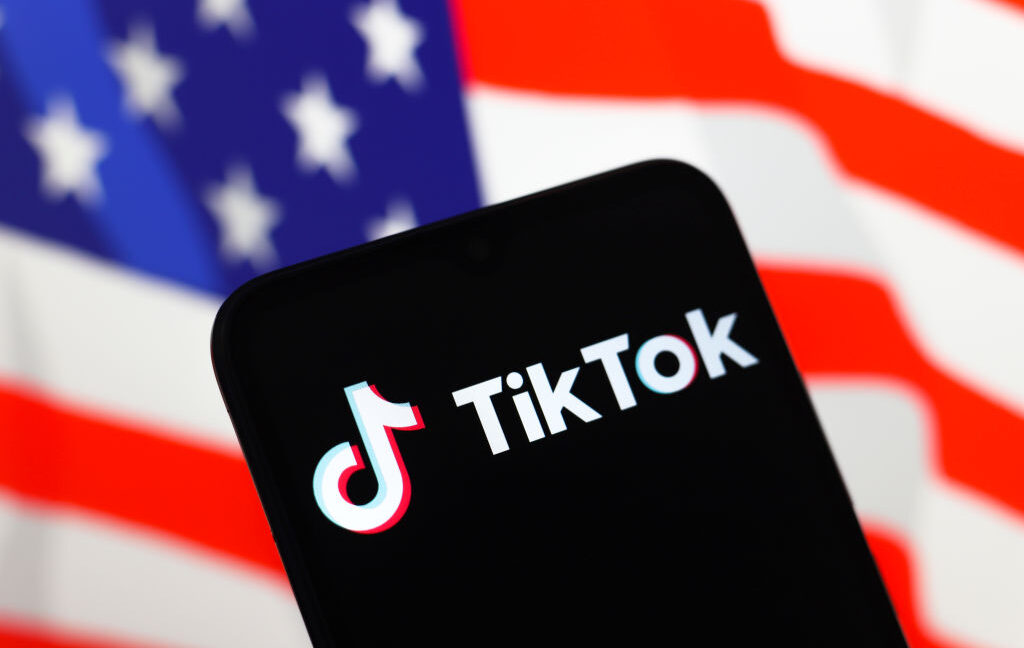TikTok loss could lead to US ban next month.

Credit: NurPhoto / Contributor | NurPhoto
On Friday, a US appeals court upheld a federal law that could ban or force a sale of TikTok early next year.
Biden signed the Protecting Americans from Foreign Adversary Controlled Applications Act into law in April, and the US was soon after sued by TikTok and its Chinese owner, ByteDance, as well as a group of individual TikTok users in the US. These plaintiffs tried and failed to enjoin the attorney general from enforcing the law, which takes effect January 19, 2025—a day before Donald Trump’s first day in office.
In the ruling, the US Court of Appeals for the District of Columbia Circuit rejected all constitutional claims, including free speech claims that had notably blocked prior TikTok bans during Trump’s last administration. In siding against TikTok and its fans, the court’s decision likely surprised some law professors who had warned earlier this year that TikTok seemingly had a strong First Amendment defense.
According to the court, the law satisfies the “high bar” of strict scrutiny because the law is “narrowly tailored to protect national security.”
The government successfully argued that the US had two compelling national security interests in passing the law. The first was to prevent the People’s Republic of China (PRC) from spying on Americans through their TikTok data, and the other was to block the PRC from “covertly” manipulating TikTok content.
Ars Video
How The Callisto Protocol’s Gameplay Was Perfected Months Before Release
Impressed by “multi-year efforts of both political branches to investigate the national security risks posed by the TikTok platform,” the court rejected arguments that the US was the one illegally attempting to control content on TikTok or censor Americans on their chosen platform. Instead, the court suggested that divestiture could ensure that Americans maintain access to the same content on the platform without exposing the US to national security risks.
“What the Act targets is the PRC’s ability to manipulate that content covertly,” the ruling said. “Understood in that way, the Government’s justification is wholly consonant with the First Amendment.”
TikTok likely to appeal to Supreme Court
TikTok is unsurprisingly frustrated by the ruling. In a statement provided to Ars, TikTok spokesperson Michael Hughes confirmed that TikTok intended to appeal the case to the Supreme Court.
“The Supreme Court has an established historical record of protecting Americans’ right to free speech, and we expect they will do just that on this important constitutional issue,” Hughes said.
Throughout the litigation, ByteDance had emphasized that divesting TikTok in the time that the law required was not possible. But the court disagreed that ByteDance being unable to spin off TikTok by January turned the US law into a de facto TikTok ban. Instead, the court suggested that TikTok could temporarily become unavailable until it’s sold off, only facing a ban if ByteDance dragged its feet or resisted divestiture.
There’s no indication yet that ByteDance would ever be willing to part with its most popular product. And if there’s no sale and SCOTUS declines the case, that would likely mean that TikTok would not be available in the US, as providing access to TikTok would risk heavy fines. Hughes warned that millions of TikTokers will be silenced next year if the appeals court ruling stands.
“Unfortunately, the TikTok ban was conceived and pushed through based upon inaccurate, flawed and hypothetical information, resulting in outright censorship of the American people,” Hughes said. “The TikTok ban, unless stopped, will silence the voices of over 170 million Americans here in the US and around the world on January 19th, 2025.”
How could Trump stop the ban?
Trump could intervene in several ways. At the very least, he could delay the ban by granting TikTok a 90-day extension to buy more time in the US before divestiture is required, the ruling noted. But that option is only available if ByteDance shows progress that it’s working toward selling off TikTok.
Some TikTok fans may find it encouraging that while campaigning, Trump indicated that he doesn’t want to ban TikTok anymore. That’s significant, since part of the reason that the court sided with the feds was because everyone in office was seemingly aligned that a ban or divestiture was urgently needed. Experts told the Verge that Trump could also potentially find another solution to resolve national security concerns—likely something stronger than TikTok’s attempts to avoid a ban with Project Texas.
But then again, Trump could change his mind and support the ban if he warms to the idea of finding a US buyer for TikTok.
The court has suggested that TikTok users should start looking for another platform, while reminding them that “the burden is attributable to the PRC’s hybrid commercial threat to US national security, not to the US Government.”
“We recognize that this decision has significant implications for TikTok and its users,” the court’s ruling said. But “this conclusion is supported by ample evidence that the Act is the least restrictive means of advancing the Government’s compelling national security interests.”




